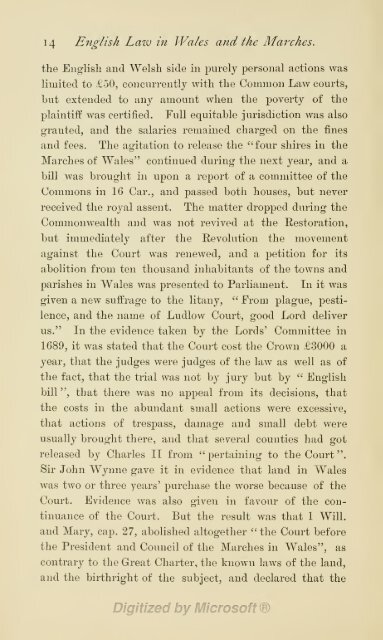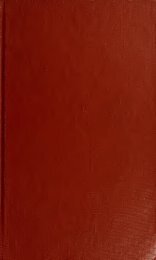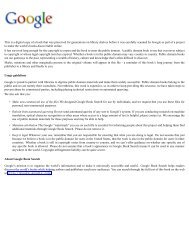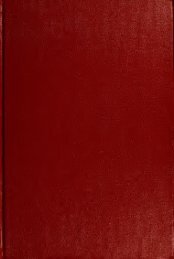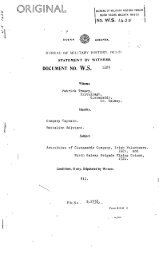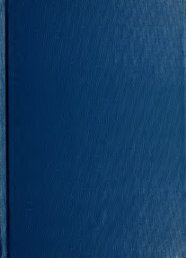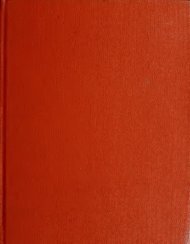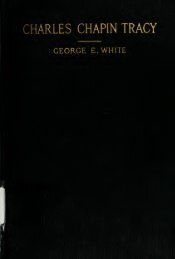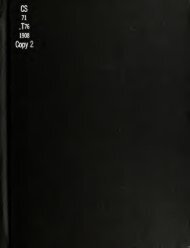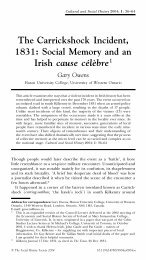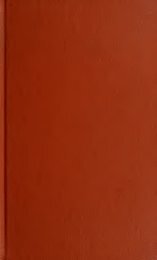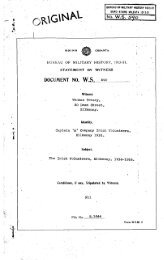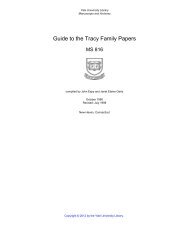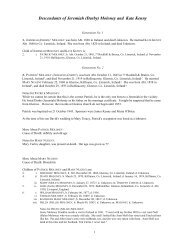Y Cymmrodor. v. XIV. 1901.
Y Cymmrodor. v. XIV. 1901.
Y Cymmrodor. v. XIV. 1901.
You also want an ePaper? Increase the reach of your titles
YUMPU automatically turns print PDFs into web optimized ePapers that Google loves.
14 English Laiü in Wales and the Marches.<br />
the English and Welsh side in purely personal actions was<br />
limited to £50, concurrently with the Common Law courts,<br />
but extended to any aniount when the poverty of the<br />
plaintiff was certifìed. Full equitable jurisdiction was also<br />
granted, and the salaries reniained charged on the fìnes<br />
and fees. The agitation to release the "four shires in the<br />
Marches of Wales" continued during the next year, and a<br />
bill was brought in upon a report of a committee of the<br />
Commons in 16 Car., and passed both houses, but never<br />
received the royal assent. The matter dropped during the<br />
Commonwealth and was not revived at the Restoration,<br />
but immediately after the E,evolution the movement<br />
against the Court was renewed, and a petition for its<br />
abolition from ten thousand inhabitants of the towns and<br />
parishes in Wales was presented to Parliament. In it was<br />
given a new suffrage to the litany, " JTrom plague, pestilence,<br />
and the name of Ludlow Court, good Lord deliver<br />
us." In the evidence taken by the Lorcls' Committee in<br />
1689,<br />
it was stated that the Court cost the Crown £3000 a<br />
year, that the judges were judges of the law as well as of<br />
the fact, that the trial was not by jury but "<br />
by English<br />
bill ", tbat there was no appeal from its decisions, that<br />
the costs in the abundant small actions were excessive,<br />
that actions of trespass, damage and small debt were<br />
usually brought there, and that several counties had got<br />
released by Charles II from " pertaining to the Court ".<br />
Sir John Wynne gave it in evidence that land in Wales<br />
was two or three years' purchase the worse because of the<br />
Court. Evidence was also given in favour of the con-<br />
tinuance of the Court. But the result was that 1 Will.<br />
and Mary, cap. 27, abolished altogether " the Court before<br />
the President and Council of the Marches in Wales", as<br />
contrary to the Great Charter, the known laws of the land,<br />
and the birthright of the subject, and declared that the


